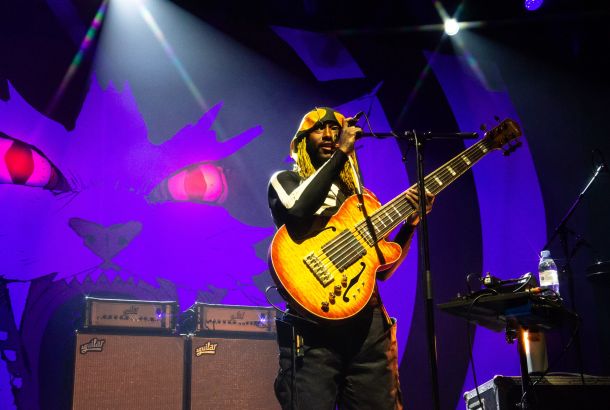Girls To The Front: Groping, Gig Culture and what men can do
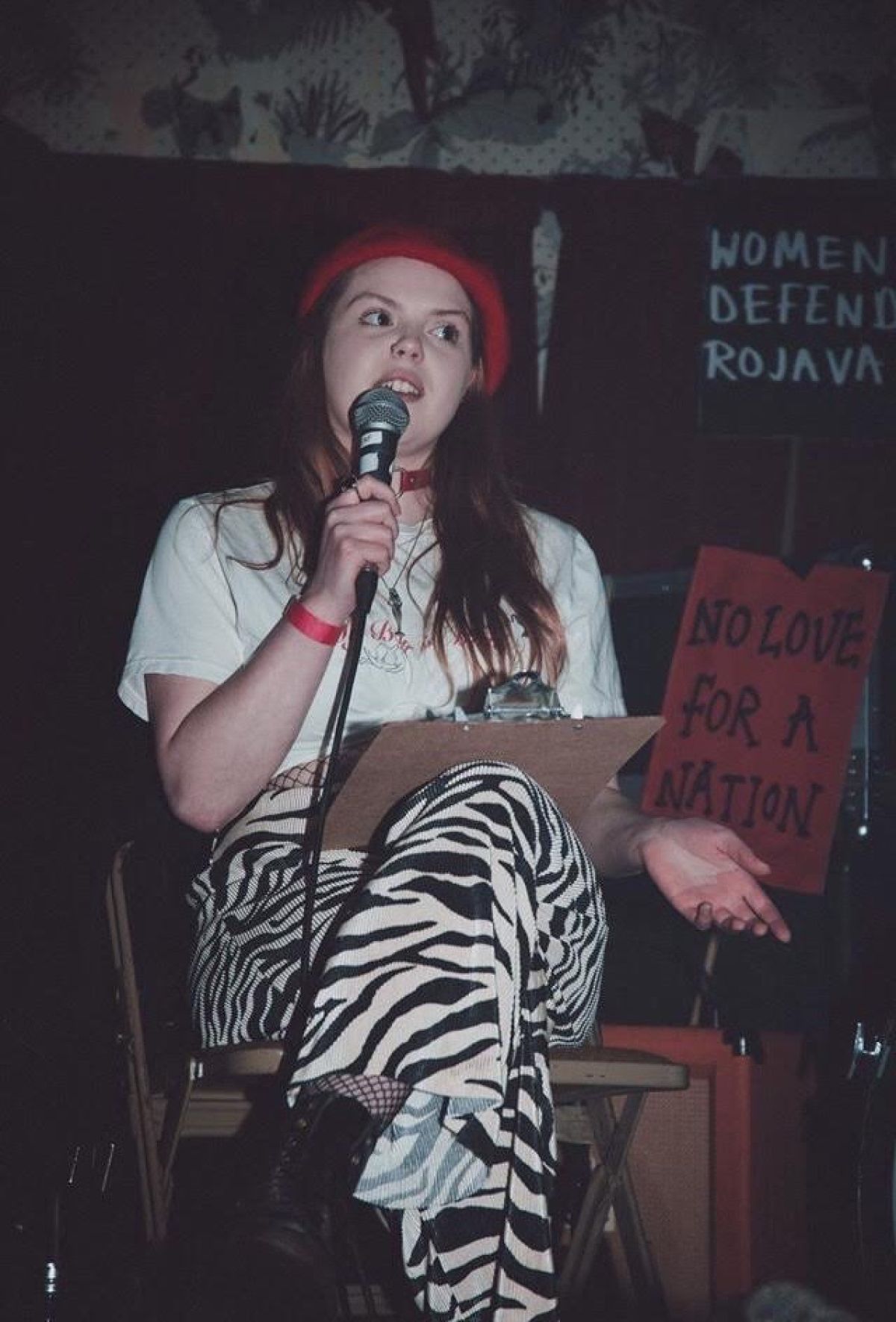
Following the tragic events surrounding the disappearance of Sarah Everard, a brighter light has been shone on issues surrounding sexual assault on all levels. Sexual harassment and groping remains a big issues at live music events, whether it’s a small time, intimate gig or a festival, I know I had accepted this behaviour from people as the ‘norm,’ and a part of going out, but in reflection why do we have to put up with this on a regular basis?
The Riot Grrrl scene of the early 90s, Bikini Kill would shout “Girls to the front!” it made women in the crowd feel safer, other bands today have been making a conscious effort to address the issues of sexual harassment at their gigs, Slaves and Sleaford Mods, to name a few.
But if you ask any female friend or relative of yours if they have ever been groped at a gig, the answer will most likely be yes. This accepted culture of groping, putting hands on bodies or forcing themselves upon you without consent has become a social norm.
The feeling of being back in a crowed room, full of people who are there to enjoy the music and get that serotonin rush from a live performance from their favourite artists, has been getting me through lockdown; but this environment many of us are dreaming of getting back to is also the same environment that enables sexual assault for countless women who become victims.
This sorrowful juxtaposition cannot continue to be brushed off as tolerable, it is not just ‘gig culture.’ I can’t think of a gig where I wasn’t brushed up on, or made a pass at. This is the same for a lot of women, they are made to feel uncomfortable and just because someone offers to let you go on their shoulders does not mean you should let them harass you until you go home with him!
Thankfully for social media, the lid has been lifted again on these issues, despite it always being a problem, the fact women and girls alike are coming forward to express the true horrors of their experiences and support others going through the same has brought this disgusting nature of ‘gig’ culture right up to the frontlines again.
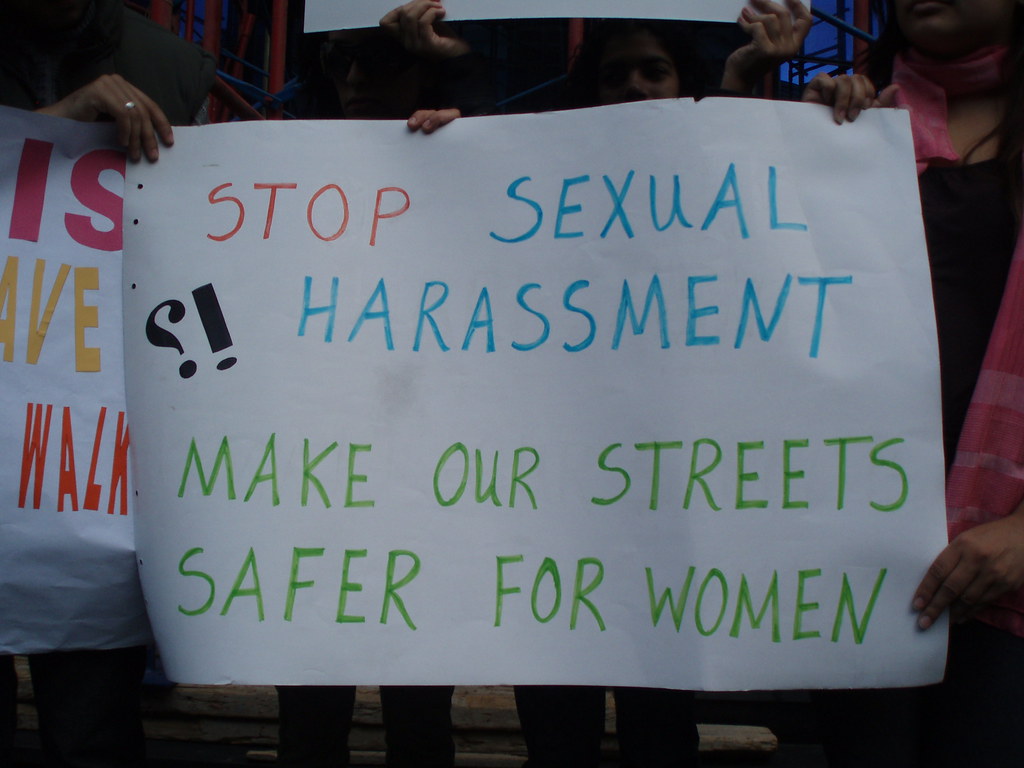
Following some candid discussions that many of us are having with our friends at the moment surrounding where we feel safe and where we don’t, we decided to create an anonymous survey about live music events and sexual harassment and assault, inviting people to anonymously share their stories and what they think both men and venues could do to prevent instances happening again when venues re-open.
We posted this survey on Manchester Student’s Group, Twitter and Instagram and have been absolutely overwhelmed with responses.
Your Stories
Within the stories shared, some very important common themes were raised. Notably, nearly half of all responses detailed instances of sexual harassment and assault that happening to girls between ages of 15 and 17 with the perpetrator being an older man.
So many expressed feelings of powerlessness, with harassment seeming almost intrinsic to the nature of a tight crowd, a natural playground for these older men to take advantage of young girls that often cannot physically move away from them. Many also expressed only identifying these instances as harassment and assault recently, previously adopting a victim-blaming mentality or seeing instances as just part of ‘gig culture’.
We thank all of those brave enough to come forward. Here are just some of the experiences shared with us:
“I was at a gig and a man behind me put his hands down my jeans & when I turned around to tell him to fuck off he ran off. I left the gig early & I was 15”.
“I had a man at a gig try and kiss me and when I rejected him he pulled down my top to expose my chest. He then grabbed my arse as he walked away laughing”.
“When I was about 16 I went to a gig and we were right at the front so obviously all squashed together. I could feel the man behind me, who must have been at least double my age, rubbing his erect penis literally up and down my back, seemingly in an attempt to pleasure himself or whatever.
Me and my friend kept turning round to give him looks to please stop but we were genuinely too scared to say anything. I felt and still feel so so violated, but I’ve never really spoken about it because I was really drunk and I was wearing a crop top so I think that I blamed myself? I was also embarrassed as though I’d done something wrong or deserving of such genuinely disgusting behaviour.
Eventually we asked the boys in front if we could move in front of them, but we just said we couldn’t see the stage or something because we didn’t want to be seen to be making a fuss.”
“These guys started grinding on me behind me. I kept digging my elbows into them and they wouldn’t stop. It got so unbearable I had to turn around and shout ‘I am going to faint. Get out of my way’ and the crowd parted and I ran out. I enjoyed the rest of the gig crying at the back. So upset as I felt so violated and this was one of my fave bands”.
“A man asked if I’d like to go on his shoulders and afterwards pressured me into kissing him and giving him sexual favours as if I’d signed up to a mutual transaction. He then followed me around all night calling me a frigid tease and groping me”.
What men can do:
Many responses to this question reflected the popular and very important posts going around social media at the moment about highlighting that men need to be talking to their mates and calling out inappropriate behaviour when they see it, because of the unfortunate patriarchal reality where, as one respondent said:
“Men will always be more willing to listen to other men”.
What cropped up the most however was how a man should appropriately move past a woman at a gig. As one respondent stated:
“Give women appropriate space. Do not touch us if they need to get past – if they NEED to touch us, men should tap us on the shoulders and say ‘excuse me’.”
This is as opposed to the common experience of being grabbed around the waist, breasts or bum, with perpetrators typically justifying this behaviour as “just trying to get past”. Please call out your friends or anyone you see engaging in behaviour like this.
Many victims of instances like these feel too scared to call these behaviours out or sometimes fail to identify the perpetrator within a busy crowd. By calling out these behaviours, you can help combat the normalisation of these behaviours and actively discourage those from partaking in them again.
What venues can do
There were many useful suggestions in response to this question including the universal implementation of the ‘asking for Angela’ initiative, where vulnerable people are able to subtly signal to staff members that they feel severely uncomfortable or in danger.
However this response may be more applicable to a bar setting and less applicable to those stuck in a busy crowd. Thinking of live music specifically, this respondent suggests a variety of ways to help:
“Hire more female security guards, more anti sexual harassment posters, educate staff on sexual misconduct and helping victims, give out drinks in lidded cups and have tests available to check for roofies in drinks, have a no tolerance policy for sexual harassment and assault”.
Further, there were suggestions of getting specific security guards to survey the crowd from an aerial view, to help identify perpetrators in the middle of crowds, typically out of the sight of on-the-ground security.
I think that most importantly however, when we go back to live music venues, venue staff must believe victims and offer a zero tolerance policy with immediate consequences for the perpetrator, as well as have someone trained to support and comfort those who have just been harassed and assaulted.
We thank those again who took part in our survey and shared their stories and suggestions. Together, by breaking down the normalisation of harassment and assault as everyday ‘gig culture’, and having structures in place to deal with instances like this when they do occur, we can reduce sexual harassment and assault in live music.
Lana talks to Girls Against:
Despite being a self-confessed introvert, there is nary a gig that didn’t have my presence. Covid-19 has acted as a curse for most people, but for some of us it is a blessing. God, I miss gigs, but I can say with all honesty I can’t remember the last times I was sexually harassed, and that’s all thanks to Covid-19.
It’s a harsh reality that being groped at gigs has become somewhat ‘normalised’ for us. After the first few times it happens, you begin to just shrug it off – but it wasn’t until recently that I realised how not okay this was. Why should we ‘accept’ being touched without our consent and take it as a part of ‘gig’ culture.
Girls Against are the female collective campaigning for exactly that, offering help to victims and raising awareness for the sexual assault that happens when we’re watching our favourite bands perform live. Creating a safe space at concerts is at the top of their agenda and we had the opportunity to talk to one of the team, Georgia, to find out more…
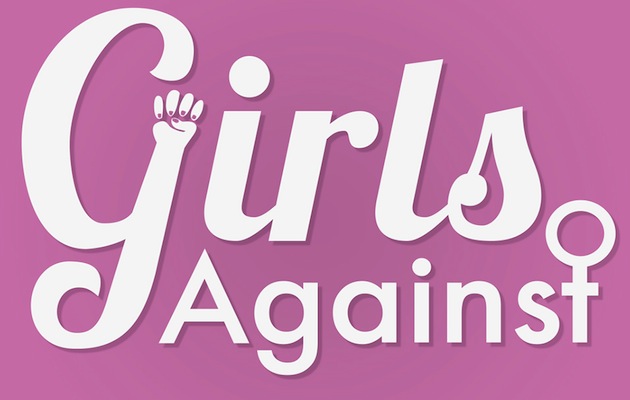
Tell us a bit about Girls Against and how you started!
Girls Against is an organisation which raises awareness of and aims to prevent sexual harassment and assault at gigs, festivals, and other live music events. We do this through engaging in conversations with venues, promoters, security, artists and gig-goers, making recommendations for ‘safer-spaces’ and producing educational materials around the subject matter.
Girls Against was established as an organisation after Hannah, one of our founding members, was groped at a gig in Glasgow in 2015. She shared her story on social media, and it was shortly picked up by the band, Peace, who expressed their outrage at the situation.
Hannah’s tweet also sparked a discussion between others (predominantly women and girls) online, who began sharing their own experiences of sexual harassment and assault at live music events. The founding members, who had all attended the gig together, felt compelled to do something about the issue, so created Girls Against as an online social media campaign to raise awareness of and help prevent instances of sexual harassment and assault at live music events.
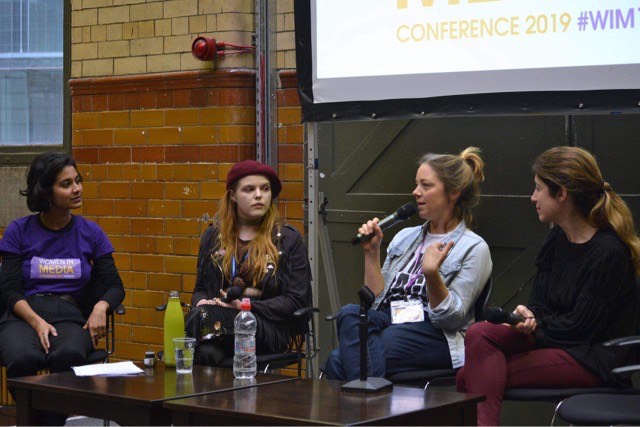
What bands and artists have endorsed your movement, and who would you liked to see involvement from?
As a young campaign, one of the main methods through which we gained widespread media attention was through the endorsement of bands and artists who supported our aims.
We gained support predominantly from indie bands &; artists like Wolf Alice, Peace, Circa Waves, The 1975, Slaves, Honeyblood, Declan McKenna, Black Honey and Dream Wife posting about us on their social media and discussing our movement at their gigs.
However, as we’ve grown as a campaign, we’ve realised that more involvement is needed from the organisations and governing bodies who actually make the legal, procedural and authoritative decisions which may make gigs and festivals safer.
That’s not to say that we don’t love to see support from bands and artists… They’re the whole reason we attend gigs and festivals, and are (obviously) the backbone of the whole music industry. However, they cannot make or enforce changes on their own.
From a personal viewpoint, I’d also like to collaborate with some more electronic and post-punk artists, as these are the gigs I most often attend. However, this is an audience we’ve not really tapped into yet.
This moment opened my eyes to what women have to go through at shows and it is fucking horrid. @girlsagainst & @safegigs4women are fantastic organisations and we are proud to stand by them as a band. https://t.co/IcUANve7Pe
— Sam Carter (@samarchitects) March 12, 2021
Do you think bands and artists have a responsibility to make sure people act accordingly/ behave at their concerts?
The onus should never be solely on bands and artists to ensure that their gigs are safe spaces; there is only so much they can do to monitor the activity happening at their gigs, whilst also performing on stage.
However, if an artist witnesses an act of sexual harassment/assault occurring at their gig, and they feel safe doing so, they should 100% call it out. Bands and artists can also help foster safe environments at their gigs through their own actions and words.
For example, if a band/artist produces music which actively promotes harmful, misogynistic attitudes, then members of their fan base are probably going to feel comfortable being openly misogynistic at their gigs.
What issues do you think women music artists face in the music industry?
Women and marginalised genders face a multitude of issues within the music industry, from harassment to often being payed less than their cis-male peers for the same work.
I’ve spoken to women artists who, when trying to enter the backstage area of their own gigs and at festivals, have been accused of being ‘groupies’ or asked if their boyfriend was in the band.
There’s such an enormous issue with festivals in particular of having heavily male-dominated line- ups, often with no women or non-binary headliners for years on end. Which is beyond absurd considering the vast array of incredibly talented women and non-binary artists.
Then there’s the other tokenistic side of the coin; being asked to play on ‘women-only’ line-ups, but not being considered the rest of the time.
Should sexual harassment be a criminal offence?
We believe that targeted sexual harassment should be treated in the same manner as any other hate crime. The wonderful Misogyny is Hate campaign based at UoM is fighting to make this a reality.
Considering the recent results of the UN Women UK poll, which found that 97% of women aged 18-24 and 80% of women of all ages had been subject to public sexual harassment, this change is long overdue.
What do you think venues should do to tackle sexual harassment in their establishments?
Venues, festival organisers and security firms first need to acknowledge that sexual harassment and assault is an issue within the live music scene. There is no shame in admitting that incidents have occurred and can occur within your venue; it can (and does) happen anywhere and everywhere, regardless of how safe you may try to make the space.
There is no such thing as a 100% ‘safe space’, as there is no way of controlling every single person’s behaviour within the event. However, there are steps which can be taken to make these spaces safer:
Having a zero-tolerance policy on sexual harassment and assault. Ensuring that gig-goers know that sexual harassment and assault are NOT tolerated in your space, and will incur consequences, such as being ejected and/or banned from the venue or, in extreme cases, taking legal action Ensuring that victims of sexual harassment and assault know that they are able to talk to someone, in confidence.
This can be done through small actions, such as placing posters in the venue, letting people know that they are able to talk to someone should an incident occur. Ensuring your staff, particularly security, are properly trained on the right steps to take, should an incident occur, and how to do so sensitively, with the victim’s wishes at the forefront of their actions.
Having security who identify as women and/or genders which also experience misogyny. Victims may be more likely to disclose incidents to those who they feel are more likely to be empathetic of their situation.
The artists that a venue allows to play in its space also speaks volumes. For example, if you are willing to allow someone who notably holds misogynistic/homophobic/racist/transphobic/ableist views to play in your venue, what message does this put out to your audience?
Do you have any advice for anyone seeking help from a sexual assault/ harassment?
If you are a victim of sexual harassment or assault at a gig/festival and feel able to inform security or a member of staff then please do, as they may be able to deal with the perpetrator and contact relevant authorities, should you so wish them to.
However, we are extremely aware that security members and authorities can be guilty of not taking experiences seriously or, in some cases, may even be perpetrators themselves. For this reason, we would never pressure anyone to disclose their experiences to an authority figure.
However, if you can, it may help to tell a trusted friend or (in some more serious cases) a specialist service such as The Survivors Trust (https://www.thesurvivorstrust.org) about your experience, so that they may provide you with support and/or guidance.
How can we get involved?
You can find out more about our organisation and follow our work at…
Website: www.girlsagainst.co.uk
Twitter: @girlsagainst
Instagram: @girls.against
Facebook: https://www.facebook.com/girlsagainstgroping/
Through these channels we will announce any future events (when they are allowed to happen!) and online campaigns.
You can also donate to our Go Fund Me at: https://gofund.me/4ff0d530 to support our work.
We’re not currently looking for volunteers unfortunately, but do keep an eye out for on our website and social media for any announcements regarding future recruitments!


